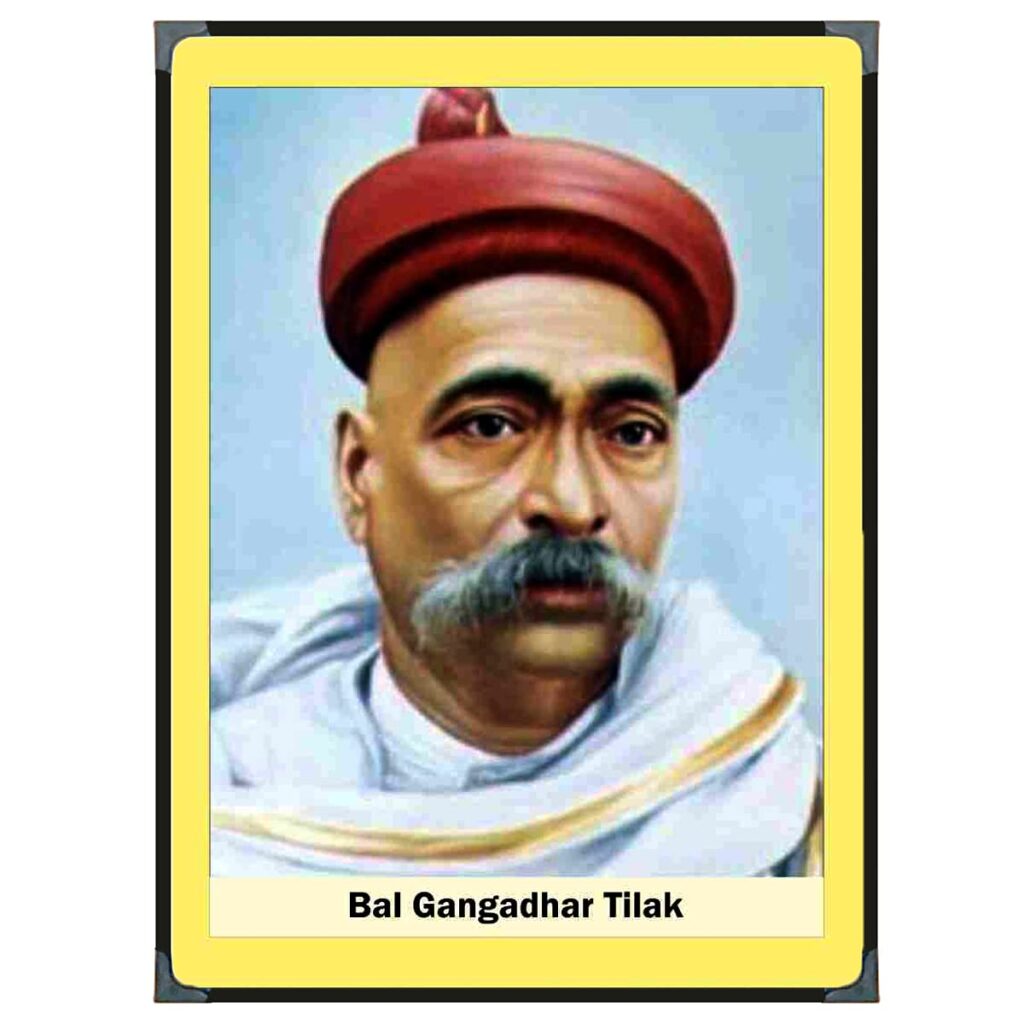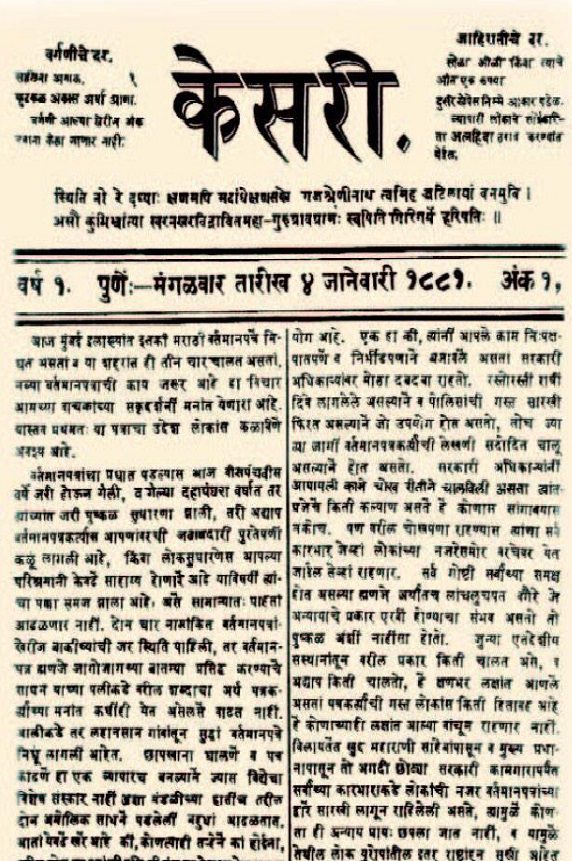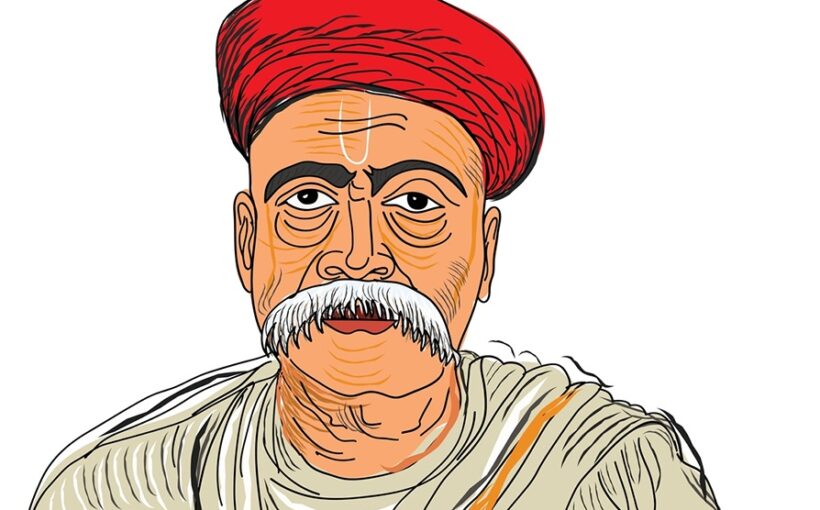Content
Background: Early Life of Bal Gangadhar Tilak
“Swaraj is my birthright and I will have it” These were the words that were said by Bal Gangadhar Tilak who fought against the draconian and unjust rule of the British Raj.
The late 19th and early 20th century was the period when the British Raj through their exploitative norms and regulations were harassing every possible section of the Indian populace.

The agriculturist, workers, educated civilians, tribal communities, and others all were affected by the draconian rule of the British government.
In the midst of this period when the British tyranny reached its peak a leader emerged from the land of the great Marathas who took the path of aggression and violent means to challenge the Raj and its rule.
He was none other than Bal Gangadhar Tilak. To this day he is regarded as the first Indian freedom fighter who rejected the peaceful way of protest against British policies and emphasized mass agitation and aggressive rebellion of people for the attainment of Swaraj.
Originally belonging to the Chitpavan Brahmin community B.G.Tilak relentlessly worked for the attainment of Swaraj (Self-rule) through aggressive means. Bal Gangadhar Tilak was born on 23 July 1856 in Bombay. He completed his graduation from Deccan College in Pune and later became a Math professor.
Apart from his contribution to the freedom struggle Tilak also took an interest in social reform movements and worked for the betterment of common people. He also founded the New English School which later became the Fergusson College.
Political Career: INC and Disagreement with Moderates
Tilak joined Indian National Congress in the year 1890 in order to contribute to the freedom struggle of his country. However soon he developed resentment against the moderate way of working method of Congress and its leaders.
Tilak firmly believed that the moderate ways of INC i.e. relying on petitions, prayers, meetings, speeches, resolutions, and constitutional agitation will never help in eradicating the tyrant British and their Raj.
He called the Congress the Congress of Flatterers and said We will not achieve any success in our labors if we croak once a year like a frog.
Furthermore, in the early years of the 20th century, the clash between the moderates and the extremist intensified rapidly. Gopal Krishna Gokhale the political guru of Mahatma Gandhi didn’t support the revolutionary ambitions of Bal Gangadhar Tilak.
Gokhale and moderate leaders relied on the principle of Prayer, Petition, and Protest while Tilak and the extremist group wanted direct action through agitation and other means.
Due to these viewpoints, Tilak decided to launch an armed uprising against the British Raj through boycotts and noncooperation.
Tilak and his followers believed in the method of Self-reliance, self-sacrifice, and strong will. He and other freedom fighters like his drew their inspiration from the glorious Hindu past and used it for the betterment of the country’s future.
Role in Freedom Struggle
When Governor General Lord Curzon announced the partition of Bengal in 1905 as a result of their divide-and-rule policy Tilak with leaders like Bipin Chandra Pal and Lala Lajpat Rai launched the great Swadeshi Movement and emphasized self-reliance (Atmashakti) and boycott of British.
During the Swadeshi movement, Tilak played a key role and he himself lead the action in the regions of Poona and Bombay. He also started two weeklies known as Kesari in Marathi language and Mahratta in English. He used these weeklies as a platform to expose the unjust and exploitive policies of the British Raj.


Furthermore, he also laid a huge emphasis on popularizing the Hindu festivals of Ganapati and Shivaji in 1893 and 1895. The main aim behind these festivals was that Tilak wanted to unite the Indians, especially the Hindus toward their culture to trigger a sense of nationalism in their minds.
Day by day Tilak influenced more people which brought many people, especially the educated Indians to participate in the freedom movement. He also opposed the Age of Consent Bill and supported the anti-cow killing societies
Imprisonment & his support for young Nationalists
As an author and a journalist, Tilak criticized the government policies in every possible way and also showed his support to those revolutionaries who were organizing assassination attempts on high British officials. Due to these activities, the British government imprisoned him three times namely in 1897, 1909, and 1916.
He was first imprisoned for criticizing the government’s attitude towards the Maharaja of Kolhapur. The government sentenced Tilak to four months of imprisonment.
Later in 1909, Tilak published various articles in his weeklies of Kesari and Maratha criticizing the government’s failure and ill-treatment of the Indians during Bubonic Plague. He also supported the assassination of Commissioner Rand and Lieutenant Ayerst by Chapekar’s brother. The British government in return charged Tilak with incitement to murder and sentenced him to 18 months of imprisonment.
Furthermore when Khudiram Bose and Prafulla Chaki tried to assassinate Douglas Kingsford the magistrate of Muzzafarpur Tilak published several articles in support of the young revolutionaries due to which the government sentenced him 6 years of imprisonment at Mandalay jail in 1908.
Home Rule Movement
On 16 June 1914, Bal Gangadhar Tilak was released from Mandalay jail and soon he started his struggle against the Raj and its policies this time in a moderate way.
By now another person emerged in Indian politics who later became the president of the Indian National Congress. This was not an Indian but came from Ireland her name was Annie Besant. Both Annie Besant and Tilak took the initiative of launching the Home Rule Movement and both formed their own leagues in 1916 with the aim of achieving self-government.
These leagues organized conferences, pamphlets, lectures, and classes explaining the goal and method of self-government for India.
Due to the leadership of Tilak and Annie Besant the Home Rule Movement was able to unite the villages, peasants, and small towns to work for the freedom of India. It also generated a sense of nationalism among educated and rich freedom activists.
Later the movement resulted in a huge success due to which the British introduced the famous Montagu Declaration. Furthermore, the Home Rule movement was able to unite the moderates with the extremists.
Legacy:
On 1 August 1920 when the Indians were standing shoulder to shoulder for their support to the Non-Cooperation Movement Tilak “The Father of Indian Unrest” passed away leaving behind his dauntless spirit, teachings, leadership, and legacy which became the symbol of inspiration for the youngsters of India.
Eminent leaders of the freedom movement had given several titles of Bal Gangadhar Tilak for example
The Maker of Modern India by Mahatma Gandhi
Father of Indian Revolution by Jawaharlal Nehru
The Father of Indian Unrest by Valentine Chirol in his book Indian Unrest
Lokmanya means accepted by the people.
All in all Bal Gangadhar Tilak and his efforts had a great significance on the freedom movement of the late 19th and early 20th century. Apart from his contributions to the freedom struggle Tilak also worked for the welfare of women empowerment.
LIKE WHAT WE ARE DOING? DONATE TO DHARMAYUDH
If you support what we are doing and would like to contribute to help us grow and reach more Indians to teach them more about such forgotten historic Indian Heroes and stories, please consider donating any amount. It will help us grow.

